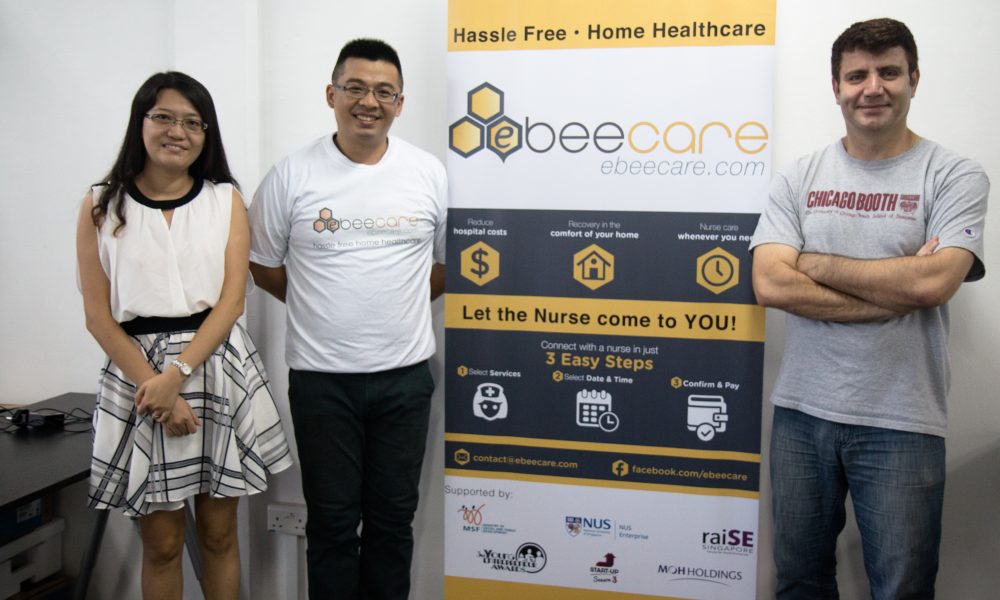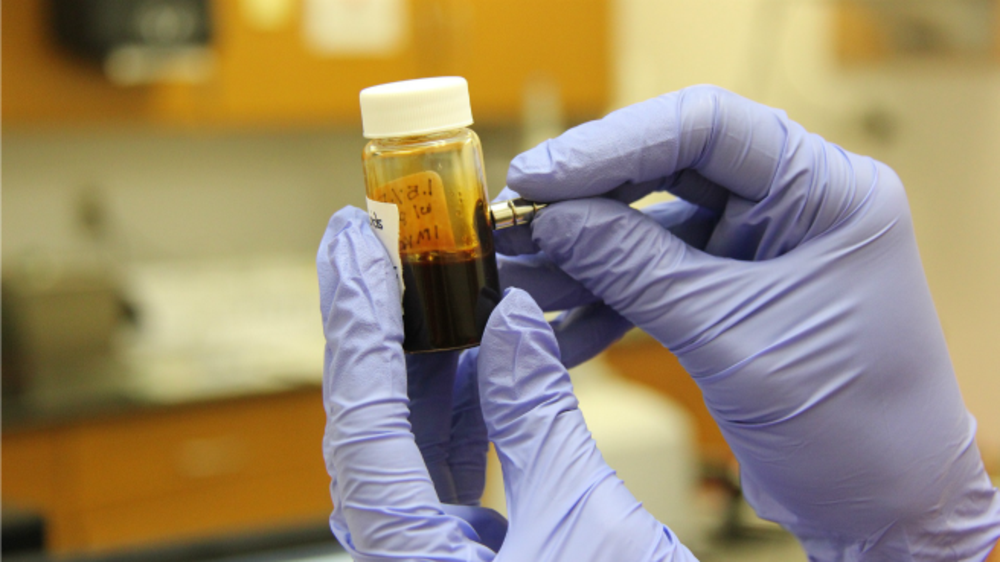Category: Economy
Dasin Retail Trust seeks Singapore IPO to raise US$84.5 million
A business trust holding three shopping malls in China’s Guangdong province is looking to raise at least 586.4 million yuan (about US$84.5 million) through an initial public offering on the Singapore Exchange (SGX) mainboard.
On Wednesday night, Dasin Retail filed a preliminary prospectus with the Monetary Authority of Singapore, not disclosing its pricing or the number of units that would be in the retail and placement tranches.
The trust is however said to have an indicative market cap of S$439.7 million (about US$303.2 million).
“Units will be offered to institutional investors under a placement tranche as well as a public offering here, subject to over-allotment options,” said the trust manager Dasin Retail Trust Management in the preliminary prospectus.
It is also added that Dasin Retail Trust will benefit in terms of acquisition growth in the Pearl River Delta region where the sponsor – Zhongshan Dasin Real Estate has an active real estate presence.
Besides, Zhongshan Dasin Real Estate has also been granted the rights of first refusal (ROFR) to the trust manager for 14 completed and uncompleted properties.
Dasin Retail Trust operates as a real estate company with its key investment mandate focusing on investing, claiming ownership or developing land, uncompleted developments and income-producing real estate in Greater China, which are mainly commercial-based.
The trust’s initial portfolio comprises of three retail malls – Xiaolan Metro Mall, Ocean Metro Mall, and the Dasin E-colour shopping mall – all of which are located in Zhongshan City. The three malls combined have a total gross floor area of about 314,884.9 square meters and were valued at 4.6 billion yuan at June 30, 2016.
Additionally, two cornerstone investors – China Orient Asset Management (International) Holding and Haitong International Investment Fund SPC has also invested 120.8 million yuan (about S$25 million) in the trust.
The role of the sole financial adviser, global coordinator and issue manager for the proposed listing was appointed to DBS Bank, which will also act as the joint bookrunner and underwriter alongside Bank of China and Haitong International Securities.
By Vivian Foo, Unicorn Media
Healthcare startup, eBeeCare to expand into India and China in 2017
eBeeCare is a local startup that links freelance nurses and caregivers with patients through providing an online platform which simplifies the search for homecare services such as elderly care and physiotherapy.
Based in Singapore, the startup is looking to expand into the Asian markets in 2017 – placing at least 50 qualified caregivers to provide similar services in Pune, a city in China, by March next year.
“The startup aims to have around 1000 freelance caregivers in India and at least 50 full-time employees to meet additional demands.” said John Chen, the co-founder and chief executive officer of eBeeCare.
Founded in 2014, eBeeCare uses sophisticated algorithms to crawl through a user’s requirement along with the particulars of registered healthcare providers to select the most suitable care provider for each client.
Prior to this, the startup has raised capital in an undisclosed amount from Govin Capital and a US$ 35,000 grant from the SPRING Singapore and the Ministry of Social and Family Development.
With the funds raised, eBeeCare can proceed its expansion plan to the market for homecare service in the second most populous country. The startup is also looking to collaborate with hospitals to manage their nurse platforms as to better utilize resources.
“Startup needs to move fast, and we want to see the business up and running in India early next year,” said Chen. “We can move into India faster as there are fewer restrictions, and it is easier to get the government’s approval.”
However, at the same time, the startup stress that it is important to maintain strict quality control on the caregivers in India through screenings and interviews.
In Singapore, nurses who wish to join eBeeCare must be registered with the Singapore Nursing Board, have at least two years of hospital experience and undergo a face-to-face interview.
One of the potential challenges that the startup will face operating overseas is the varying demands of patients in different countries, from cultural, language or infrastructure differences.
“We adjust our services based on needs. I’m sure there are some services in normal demand in Singapore but will be high demand in India, or vice versa,” said Haluk Tanik, the co-founder and COO of eBeeCare.
Aside from India, eBeeCare is also eyeing the Chinese market, planning to begin with the province of Guangdong as due to its position as a financial hub. However, capital alone is insufficient in cracking the Chinese market.
“Doing business in China is not about the money you have,” explains Chen. “What’s more important is connections and the resources that you have.”
eBeeCare is currently in talks with a few investors in China, including Shanghai Kindly Enterprise Development Group (KDL), one of the biggest medical polymer product manufacturers in China.
Back in Singapore, the startup will also roll out expansion plans next year.
While John Chen envisions eBeeCare to be the main provider of homecare in Asian countries, in the long run, he is also maintaining a cautiously optimistic outlook.
“I’m still 50-50 on whether eBeeCare will be able to be a regional or even global service provider, but at least we have the data, we know what people want, and the best form of care services they enjoy. This, in the long run, will really be a gold mine.” the founder of eBeeCare said.
By Vivian Foo, Unicorn Media
IdeaSpace launches 2017 Philippines startup competition
IdeaSpace Foundation, an early-stage technology incubator and accelerator in the Philippines has formally launched its National Startup Competition for 2017 and has begun accepting innovative technology ideas.
IdeaSpace is a non-profit foundation backed by First Pacific, Metro Pacific Investments Corp (MPIC), Metro Pacific Tollways Corp (MPTC), MPIC hospital group, PLDT, Meralco, Smart Communications, Maynilad, Voyager Innovations, and PayMaya Philippines.
On its fifth year, the 2017 IdeaSpace National Startup Competition will be increasing its finalist quota, accepting 15 startups instead of the usual 10, into the final acceleration process.
The acceptance of more startups is part of IdeaSpace’s efforts to expand and accommodate the local startup ecosystem, which it noted has seen robust growth over the past four years.
“We’ve seen very inspiring stories of startup founders joining IdeaSpace over the years, from husband-and-wife tandems to students looking to make their own mark in the world,” said the Executive Director of IdeaSpace, Diane Eustaquio.
“This year, we’re looking to extend our support to more startup founders with burning passion for starting up their own business and helping the country progress with the help of technology and innovation,” she adds.
All 15 startups that make it to the finals next year will receive an equity fee funding of PHP 500,000, which translates to an approximate amount of US$ 10,000.
Besides, the teams will also receive support for housing, transportation, incorporation, office space, communication, software, classes and training, as well as mentorship from executives under First Pacific companies, the total value of which amounts to more than PHP 1 million.
However, IdeaSpace will not have a stake in their early-stage startups.
Newly appointed IdeaSpace president Butch Meily said the foundation has been extending its capacity into a – full ecosystem support. This is to ensure that most of the startups are guided every step of the way.
“We’ve realized over the years that startups need as much support as they can get in every step of the process, from bringing their ideas to life to launching them into the market, and even to making their startups grow further,” Meily explains.
But aside from incubation and acceleration programs, IdeaSpace has also been an avid supporter of startup community events in the country and overseas, such as the annual Geeks on a Beach conference, the Slingshot MNL programme by the Department of Trade & Industry, as well as the DLD Tel Aviv Innovation Festival.
Since launching in 2012, IdeaSpace has incubated and funded a total of 52 startups, some of which have grown and evolved into large businesses and enterprises such as PinoyTravel and TimeFree Innovations.
Interested individuals or groups may submit their unique startup ideas by logging on to apply.ideaspacefoundation.org. Deadline for submission of ideas is on January 12, 2017.
By Vivian Foo, Unicorn Media
Three VC firms to launch US$375 million Biomedical Translation Fund
The Australian government under Turnbull has selected three VC management funds to administer its A$500 million (about US$375 million) Biomedical Translation Fund that is said to be Australia’s largest life sciences fund.
The three investment firms mandated to manage the government capital are – Brandon Capital Partners, OneVentures Management, and BioScience Managers – which have all been tasked to select and finance Australian start-ups in the health and medical research sector.
The capital fund is intended to boost life sciences sectors, specifically medical research projects in the advanced pre-clinal, Phase I and Phase II stages, according to a government statement.
The BTF was first pitched as part of the government’s National Innovation and Science Agenda which comprises A$250 million from the government with the remaining capital matched from the private sector.
Each manager was assigned to different portions of the fund but all three will screen investment proposals to the BTF and develop a broad portfolio of investment in Australian science and research.
Brandon Capital Partners has been appointed to manage a combined A$230 million fund, comprising A$115 million from the Commonwealth and A$115 million in private capital, which is contributed from Australian biotech giant CSL.
According to Brandon Capital, they will invest its $230 million through Australia’s largest life sciences fund, the new MRCF BTF fund which is occupied by a range of private investors including biotechnology firm CSL and superannuation funds AustralianSuper, Hesta, Statewide and HostPlus.
This would be the first time for the industry to have access to the sort of funds that it needed to supercharge it to the next stage. For as companies get into phase-two, instead of selling them, VCs now have the viable option and transformative capacity to support them into the next phase.
“On all measures, Australia has one of the world’s leading biomedical research industries, but unfortunately, too often, we see promising discoveries leave our shores early in development, with little value returned to the country,” the managing director of Brandon Capital, Dr. Chris Nave said.
“The size of the MRCF BTF provides the opportunity for these technologies in Australia to be developed to much later stages, and in some cases to even make it through to the market,” he adds.
Under his leadership, the MRCF BTF fund will invest in maturing technologies that have progressed to clinical studies. The VC is also expected to make its first investments in early 2017.
“The government has made a bold decision,” said Dr. Chris Nave. “Rather than spreading the money around and pleasing people, it has chosen to make sure it’s applied in a way that is going to grow the industry by choosing three funds.”
Meanwhile, OneVentures and BioScience Managers are to manage the combined Commonwealth and private capital commitments of A$170 million and A$100 million respectively.
On OneVentures Management side, the company said its fund would be open for business in January and would be looking to make initial investments in the first half of the year, investing $10m-$20m in each individual company.
The investment criteria for OneVentures’ fund is that a company’s innovation has reached clinical proof of concept, with phase-one or equivalent trial results; have a clear commercial, regulatory and reimbursement pathway; and clear value inflection and exit points on deal entry. It is looking for companies commercializing medical devices, drugs in clinical development or diagnostics.
On the other hand, Jeremy Curnock Cook, the managing director of BioScience Managers said, “What is required is not just more money but an investment approach that ensures that companies can access the right people and expertise to give their biomedical innovation the best chance to succeed in a highly competitive world market.”
“We really need to ensure that the next generation of companies like Cochlear, Resmed and CSL can grow and flourish from Australia and become international champions, and this investment capital will certainly go a long way to ensuring that,” he adds.
Mr. Curnock Cook also noted that it was important to remember that the money was not a handout, highlighting that the federal government was rightly expecting to achieve a good financial return on its investment on behalf of taxpayers.
By Vivian Foo, Unicorn Media
China Merchants VC leads funding round in tech media platform 36Kr.com
36Kr, a Beijing-based technology media platform and startup services provider had received around RMB100 million (about US$14 million) strategic investment in a new funding round led by China Merchants Venture Management Co., Ltd.
Investing as a strategic investor, China Merchants Venture hopes to cooperate with 36Kr in order to support the advancement of entrepreneurs and boost innovation in China.
“This investment is an important initiative for us. 36Kr has a unique advantage in venture capital and entrepreneur services,” said Lv Kejian, the general manager of China Merchants Venture.
This investment follows a Series D financing led by Ant Financial in the company last October. While Kr Space, 36Kr’s co-working space spinoff, received a combined RMB 200 million (about US$ 30 million) from Prometheus Capital and IDG Capital Partners.
Launched in 2010, 36Kr started off as a technology blog. But to date, the company currently operates four business units, which includes media, venture fundraising services, financial services and co-working space.
After this fundraising round, the company plans to separate and operate each of its business units independently, seeking further funding to grow each unit, as it did with its co-working space division – Kr Space.
The company also has ambitions to pursue an initial public offering domestically for its media and co-working space in the next few years.
With over 82,000 start-ups aggregated on its platform, 36Kr claims to have helped 2,000 start-ups raise venture funding. Its co-working space unit currently has 28 locations in China and plans to open dozens more.
By Vivian Foo, Unicorn Media





